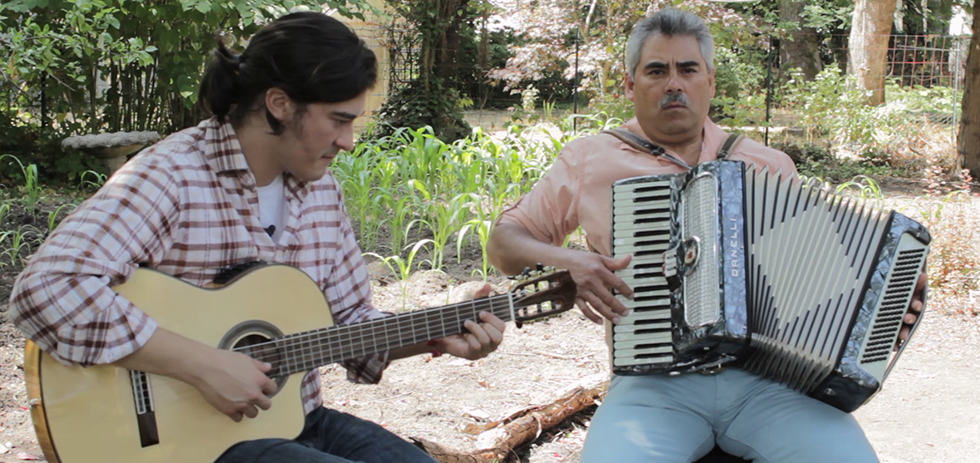
Filmmaker Marco Castro-Bojorquez’s El Canto del Colibrí devotes its 50 mins to acting as a vessel for voices that are rarely heard: Latino immigrant fathers, shown in conversation with their LGBTIQA+ children. Steering clear of a tokenistic exploration, the documentary greets us at an intersection of race, gender identity, sexuality, class, and diasporic experience. The exploration of parent-child relationships isn’t new territory, but its specific focus unravels a nuanced insight into Latino culture and diaspora as it relates to the experiences of different members of the LQGBTIQA+ community, and their fathers.
The film approaches its subject matter with a traditional documentary style, its powerful impact a result of its substance and the significance of its unique material. It begins with the early lives of the Latino fathers, Latino migrants from predominantly working-class backgrounds, and follows through to their present day lives. Talking heads and still photography overlaid with voice-overs serve as the dominant form of communication, but these devices move back and forth between insight from the fathers themselves, and comments from their children. The result is an open dialogue between the documentary’s two groups of subjects – on a myriad of issues, including acceptance, Latino culture and machismo, and immigration.
The open dialogue is an apt decision from Castro-Bojorquez and his filmmaking team. In its examination of the families’ experiences, the interplay of remarks from both sides inevitably gives a fuller picture. Yet the film also ventures further; its chronological approach exposes the shifting mindset of the fathers as they grappled with difficulties while raising their children. The footage itself derives from interviews taken at one particular time, rather than over the years. Nevertheless, their recollections and memories are arranged chronologically. Consequently, the fathers are self-reflective even as they reminisce about past events. The interviews compel them to revisit and reconsider past events, actions, and behaviours. Even the simple act of remembering and recounting quietly poses the question of whether they continue to be as supportive and informed as possible. In that way, it’s poignant viewing to witness as the fathers continue to work to understand their relationship to their children, both as parents and as allies. It acts as a reaffirmation of their ongoing commitment to loving and supporting their children.
That reaffirmation is crucial to the documentary’s central premise – the prevailing of love and acceptance over societal and cultural forces. However, Castro-Bojorquez manages to differentiate the documentary from other overly simplistic work that reduces its message to acceptance versus rejection. Even as we see one father proclaim his unconditional love for his gay son, he jokingly recalls still hoping, at a point in the past, that his son was the “pitcher” and not the “catcher” in his relationship with another man, as in accordance with Latino ideas around masculine men and sexual performance. Importantly, these anecdotes are more than amusing tidbits. What they tell of is a long, multi-faceted journey to proper support of their children, a journey fraught with cultural beliefs that, despite staunch familial love, can still prove deeply embedded and challenging to un-learn.
Through a meticulous selection of footage, Castro-Bojorquez and editor Jesus Beltran are able to simultaneously allow the fathers to speak frankly and openly, while ensuring that this isn’t at the expense of their children. Even as their fathers reveal intimate thoughts, feelings, and opinions, the documentary ensures that certain events are recounted through their children first and foremost. One daughter tells of her mother’s verbal abuse, even as her father supported her, but adds that her father was complicit by not defending her when her mother was present. She contextualises the event, and is given a position of power by the filmmakers, before her father is shown offering his account of events. In retrospect, he admits to not being there for her in the past.
El Canto del Colibrí empowers its subjects, both the fathers and their children, with a simple, conventional approach to documentary filmmaking. Nevertheless, it magnifies voices often not heard in the LGBTIQA+ community. In the process, the documentary permits some of the challenging and complex issues around queer Latin American family members, to be addressed and reflected on. For this, and for its respectful, intelligent and engaging tone, it’s well worth the watch.
